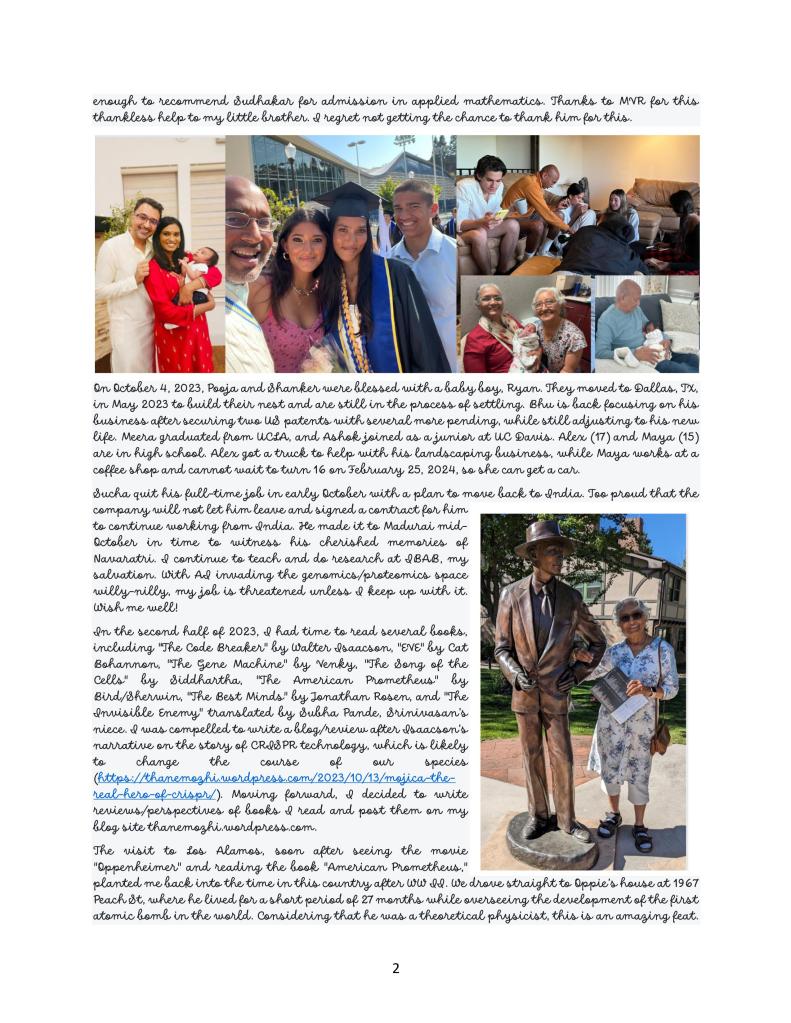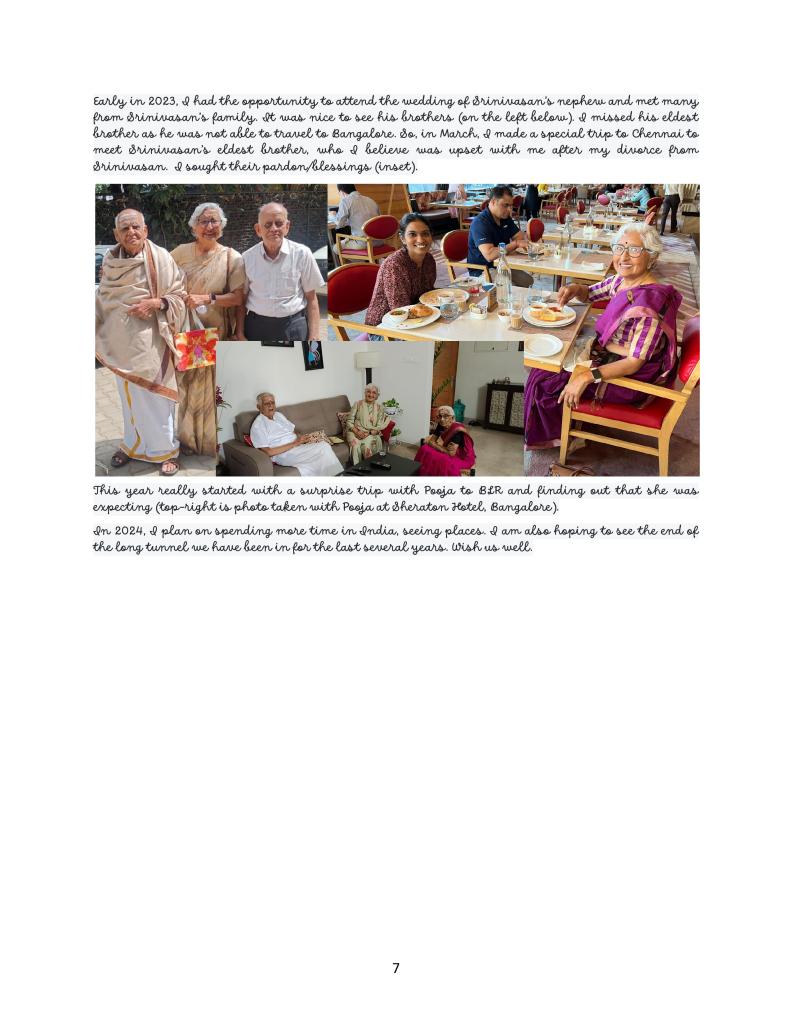






Signs of Success follows Success of Science
“The Best Minds” by Jonathan Rosen is a memoir—or is it a biography—of Michael Lauder, his childhood friend who looms large in Jonathan’s life. Both are of Jewish descent, raised in the same neighborhood in New Rochelle during the ’70s, went to the same school, and shared books and their dream of becoming writers. Jonathan portrays himself as the slower of the two in reading and even suggests that Michael can inhale a page while you take a deep breath. Pretty impressive! Jonathan also recalls Michael specifically warning that he will see less of Jonathan at Yale because Jonathan was too slow. It was clear to both of them that they were in a hare-tortoise race, and despite their deep friendship, they competed with each other. At the end the tortoise wins by telling the hare’s story.
Michael, the youngest among three brothers in an intellectually vibrant family, grew up frequently visiting friends’ houses. According to Jonathan, Michael’s personality and intelligence naturally attracted people to him, resulting in a substantial community that supported his intellectual development. In contrast, Jonathan’s mother and one of her close friends were both writers, offering steadfast encouragement for Jonathan’s career choice. Additionally, Jonathan’s sister, who attended Yale, had a profound influence on him, to the extent that “The Best Minds” is dedicated to her.
Michael successfully completed his undergraduate studies with high honors at Yale in three years and subsequently joined Bain and Associates, a Fintech company. His initial goal was to amass wealth quickly, enabling him to retire early and pursue his passion for writing. However, Michael’s experience at Bain transformed him into a different person, as he began to harbor fears of his phone being tapped and sensed that someone was tailing him. One cannot help but ponder whether the pressures at Bain served as a triggering factor, akin to the triggering schizophrenia in one of Siddhartha’s family members by solving a challenging math problem all night, as described in his book “The Gene” .
Michael’s hallucinations kept deteriorating. Rejection from his girlfriend and his first fiction involving graphic descriptions of grotesque murders further worsened his mental state. Michael applied to several law schools across the country and was admitted to all of them. However, he rejected all offers except Yale, where he had deferred a year during his treatment for paranoid schizophrenia.
At one point, Michael believed that his parents were killed by Nazis and that his parents were robots. This is not so propostorous given that he grew up knowing Janathan’s grand parents were killed in a concentration camp. He was admitted to a psychiatric hospital by his own mother when he slept with a knife and a baseball bat. After eight months, he was released and checked into another facility, supporting himself with social supplements from the Federal Government.
As his condition improved, he was advised to take a job at a checkout counter in Macy’s. However, Michael opted to attend Yale Law School instead. Yale Law School promised to provide Michael with an invisible wheelchair and a ramp. It is touching to learn that the Dean and a professor at Yale personally delivered a bed to the dorm room when Michael broke down after finding that the room alloted to him had no bed. Yale Law School welcomed him despite knowing that he had severe schizophrenia, taking his condition a challenge. The support he received at Yale Law School was amazing, and he graduated in 3 years and was offered a scholarship to continue research at Yale. He did become an advocate for people with mental illness, proposing more communal support for mental health in place of hospitals and medication.
Michael moves into a small apartment in New York with his girlfriend, Carrie. Michael’s struggle in securing a teaching position made him go public with his condition, which was published in The New York Times. The New York Times article triggered an interest in Hollywood, which purchased his story for $1.5 million to turn it into a movie called “The Laws of Madness.” Michael also signed a book deal for $600,000, in line with his childhood dream to become a writer. However, success came at a huge cost for Michael, like his days at the envious job at Bain. Michael stops taking medication and ends up murdering his pregnant fiancée in 1998, mistaking it for a wind-up doll. This is where my heart literally stopped, and the movie/book deal fell apart. A sad example of tragedy of good intensions.
Within a few years “A Beautiful Mind,” the story of a brilliant mathematician with paranoid schizophrenia by the same producer, became a hit in 2001. With all due resoect to Nash’s brilliance, I find the act of the opportunistic producer totally tasteless and disgusting. “A Beautiful Mind” has been on my To-See list for a whole decade. I am glad I never got to seeing it. Now, after reading “The Best Minds,” I must regretfully remove it from my Wishlist. Is a beautiful mind a BIG risk factor for schizophernia?
The first time I became aware of the link between schizophrenia and brilliance was in the book “The Gene” by Siddhartha Mukherjee, where he openly discusses the genetic source of this malady running in his family. He describes how the disease manifested overnight in one of his close relatives after attempting to solve a very challenging math problem all night, perhaps overheating the neurons.
Schizophrenia is believed to arise from a combination of genetic, biological, environmental, and psychological factors. Michael’s grandmother had schizophrenia, making Michael predisposed to this illness. However, Michael, who had a very warm and nurturing community during childhood and extended support from Yale Law School, had started advocating a more community-based approach to caring for mental illness. He also worked hard to dispel the stereotype that people with schizophrenia are violent by living a normal life in New York with his girlfriend. Michael’s oversight was underestimating the role of medicine in his success. The confusion between the effects/side-effects of antipsychotic medications administered for schizophrenia, due to the lack of specific drugs against schizophrenia, compromised compliance.
Compliance with medication is a major issue in medical treatment, especially if the effects of the drug are not felt within hours or days. I believe that significant research efforts may be needed to improve compliance. In the case of Michael, the clarity in thinking was diminished by the metal fog associated with the medication. Perhaps the fog is not a side effect but the intended effect. Recently, I read a book titled “Change Your Mind, Change Your Life” by Daniel G. Amen, in which they take pictures of active brains with SPECT scans and compare them with normal brains. They also claim that the differences can be shown to revert towards normal after treatment. Although the book may sound like an advertisement for the Amen Clinic, making their claims less authentic, it suggests that there may be ways to improve compliance using a test that validates the improved symptoms from medication.
The skill to IMAGINE is unique to humans, and schizophrenia is a disease of imagination going berserk. The lack of animal models for schizophrenia, because of a lack of imagination in lower vertebrates remains a major roadblock in drug development. Without a drug and difficulty in the identification of genetic sources, the only option for treating this disorder, albeit powerful, resides in controlling/changing the environment. When Michael was in the psychiatric facility for 8 months after graduating from Yale and before post-graduate years at Yale Law School, he was asked not to write. Although this is counterintuitive, I believe this is to avoid his brain taking the same exit that may have caused the first episode. Interestingly, it is the book deal for The Laws of Madness, which he forced himself to finish before the launch of the movie, that. may have triggered the second episode that ended his normal life forever.
My parents used to tell us not to indulge in activities too much even if it is a productive activity near and dear to us. Ths is no different than telling kids not to eat too much chocolate. In any event, we did not have the luxury to continue to keep doing anything for. extended period because of intemittent demand from endless chores throughout the day. That said, as our bodies have not yet evolved to do the same activity for hours like farming, our brains, however brilliant, have not evolved to sustain long hours of intense mental activity. Carpal tunnel syndrome is a classic example of injury from prolonged stress. While I am writing this passage, a message pops up on my iWatch: “Time to Stand Up.”
Very soon I expect my iWatch to send a message “Stop imagining” or “Time to Play with Your Dog.”